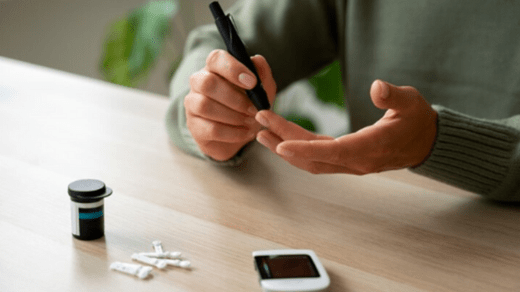Does Diabetes Type 2 Medication Have to Be Taken Forever?

Type 2 diabetes is a chronic condition that affects millions of people worldwide, characterized by insulin resistance and an inability to properly regulate blood sugar levels. One common question among those diagnosed with type 2 diabetes is whether they will need to take medication for the rest of their lives. The answer to this question is complex and depends on various factors, including the severity of the condition, lifestyle changes, and individual responses to treatment.
In this article, we’ll explore the role of medication in managing type 2 diabetes, the possibility of reducing or stopping medication, and the importance of lifestyle changes in the long-term management of the disease.
Understanding Type 2 Diabetes and Medication
Type 2 diabetes occurs when the body becomes resistant to insulin, a hormone that helps regulate blood sugar levels. Over time, the pancreas may also produce less insulin, making it harder for the body to maintain normal blood glucose levels. As a result, high blood sugar (hyperglycemia) can lead to serious complications such as heart disease, kidney damage, nerve damage, and vision problems.
Medications for type 2 diabetes are designed to help control blood sugar levels. There are several classes of drugs that work in different ways:
- Metformin: Often prescribed as the first line of defense, metformin works by decreasing the amount of glucose produced by the liver and improving the body’s sensitivity to insulin.
- Sulfonylureas: These medications stimulate the pancreas to produce more insulin.
- GLP-1 receptor agonists: These drugs mimic a hormone that regulates blood sugar and appetite, helping with both glucose control and weight loss.
- DPP-4 inhibitors: These medications help the body use insulin more effectively by preventing the breakdown of a compound that stimulates insulin production.
- SGLT-2 inhibitors: These drugs help the kidneys remove excess glucose from the bloodstream by excreting it in urine.
- Insulin: In some cases, people with type 2 diabetes may need to take insulin injections, especially if oral medications are no longer effective.
While these medications can be highly effective in controlling blood sugar levels, they are often prescribed with the understanding that managing type 2 diabetes is a lifelong process. However, this does not necessarily mean that everyone will need to take medication forever.
Can Type 2 Diabetes Be Reversed?
One of the most common misconceptions is that once diagnosed with type 2 diabetes, a person will always need to rely on medication. While type 2 diabetes is typically viewed as a progressive condition, it is possible for some people to reverse the effects of the disease through significant lifestyle changes.
Reversal vs. Remission: It’s important to understand the difference between “reversal” and “remission.” Reversal implies that the condition has been permanently cured, whereas remission refers to the ability to manage blood sugar levels within a normal range without the need for medication. In most cases, people who achieve remission will still need to monitor their blood sugar levels and maintain a healthy lifestyle to avoid a recurrence of the disease.
The Role of Lifestyle Changes
Lifestyle changes play a crucial role in the management of type 2 diabetes, and in some cases, they can significantly reduce or even eliminate the need for medication. Here are some key areas where changes can make a substantial difference:
- Diet: A healthy, balanced diet is one of the most effective ways to manage type 2 diabetes. Reducing the intake of refined sugars, processed foods, and simple carbohydrates while increasing the consumption of vegetables, whole grains, lean proteins, and healthy fats can improve blood sugar control. Many people with type 2 diabetes find that adopting a low-carbohydrate or Mediterranean diet helps stabilize their blood sugar levels and reduces their reliance on medication.
- Weight Loss: Obesity is a major risk factor for type 2 diabetes, and losing excess weight can significantly improve insulin sensitivity. Studies have shown that losing even a modest amount of weight—5% to 10% of body weight—can lead to better blood sugar control and potentially reduce the need for diabetes medications.
- Exercise: Regular physical activity is another critical component in managing type 2 diabetes. Exercise helps lower blood sugar levels, improve insulin sensitivity, and promote weight loss. A combination of aerobic exercise (such as walking, cycling, or swimming) and resistance training (such as weightlifting or bodyweight exercises) is generally recommended for optimal results.
- Stress Management: Stress can cause blood sugar levels to rise, making it harder to control diabetes. Practicing stress management techniques such as mindfulness, meditation, yoga, or deep breathing exercises can help individuals manage their stress levels and improve their overall well-being.
- Sleep: Poor sleep quality can negatively impact insulin sensitivity and blood sugar control. Getting enough restorative sleep each night is essential for people with type 2 diabetes to maintain optimal health and manage their condition.
Reducing or Stopping Medication
For some individuals, lifestyle changes alone may be enough to manage their type 2 diabetes without medication. In these cases, it’s possible that medication can be reduced or even stopped altogether. However, this should always be done under the supervision of a healthcare provider, as abruptly discontinuing diabetes medication can lead to dangerous spikes in blood sugar levels.
A gradual reduction in medication may be considered if:
- Blood sugar levels remain consistently within a healthy range.
- The individual has achieved and maintained a healthy weight.
- The person is committed to ongoing lifestyle changes such as regular exercise and a balanced diet.
- A healthcare provider has determined that medication is no longer necessary for glucose control.
It’s important to note that not everyone with type 2 diabetes will be able to stop taking medication. The disease progresses differently in each person, and some may require long-term medication to keep their blood sugar levels under control, even if they make significant lifestyle changes.
The Importance of Monitoring and Regular Check-Ups
Even if someone is able to reduce or stop taking medication, type 2 diabetes is a chronic condition that requires ongoing monitoring. Regular check-ups with a healthcare provider, routine blood sugar monitoring, and blood tests such as A1C levels are essential for tracking progress and ensuring that blood sugar remains within a healthy range.
If blood sugar levels begin to rise again, it may be necessary to restart medication or reintroduce lifestyle interventions to maintain control of the condition.
While many people with type 2 diabetes will need to take medication to manage their blood sugar levels, the necessity of lifelong medication depends on several factors. Through significant lifestyle changes such as diet, exercise, weight loss, and stress management, some individuals may be able to reduce or even eliminate their reliance on diabetes medication. However, type 2 diabetes is a chronic condition, and even those who achieve remission should remain vigilant in monitoring their blood sugar and maintaining a healthy lifestyle. Always consult with a healthcare provider before making any changes to your diabetes management plan.
This article was written by Buffalo Weight Loss. Buffalo Weight Loss, a weight loss clinic Williamsville NY is an effective solution to patients who struggle with obesity. Semaglutide works by suppressing the appetite and decreasing food intake. This leads to weight loss.
The patient will be evaluated to determine the specific goals and needs for weight loss. BWL will receive a personalized treatment plan which includes Semaglutide in their weight loss program.
It mimics the effects of GLP-1 hormone, which regulates glucose metabolism and appetite. Semaglutide activates GLP-1 receptors to reduce hunger and help you feel full. This leads to a decrease in calorie intake.




